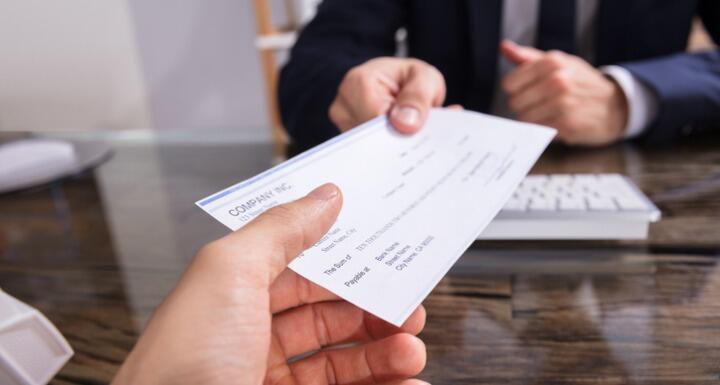We previously notified you that the CARES Act contained a key provision related to existing SBA loans. Section 1112 of the Act appropriated $17 billion to subsidize principal, interest, and fees for six months for some small business loans. The CARES Act told the SBA what it had to do, but borrowers and lenders have been waiting for guidance on how the program would work.
The wait is now over. On April 16, the SBA issued an eight-page Procedural Notice outlining implementation terms. Here are answers to key questions:
Is my loan covered?
The program applies to 7(a) and 504 loans that are in regular servicing status. It does not apply to loans that are (or should be) in liquidation status before the program started. If your loan is more than 120 days past due, it likely will not be eligible for the program.
When does the program start?
For a covered loan made before March 27, 2020, and not on deferment, the SBA will make the payments for the six-month period beginning with the next payment due after March 27.
504 loans: If the first loan payment was due on April 1, 2020, the SBA will make the payments by May 1, 2020, to the Central Servicing Agent ("CSA") based on information maintained in the CSA E-Tran system. SBA will make all payments to the CSA except for SBA-purchased debentures, and the CSA will make no ACH debits to the Borrower's accounts.
7(a) loans: Since the payment date varies with each loan, SBA will make the first monthly payment for these loans directly to the 7(a) Lenders by April 30, 2020.
I just made a payment. Can I get it back?
Yes. If the 7(a) Lender receives a loan payment from a Borrower to cover this first monthly payment, the Lender must inform the Borrower that the Lender can return the payment to the Borrower or apply it to further reduce the loan balance after application of the SBA's payment.
My loan is currently on deferment. Will the SBA still cover my payments?
Yes. For a covered loan made before March 27, 2020, and on deferment, the SBA will make the loan payments for the six-month period beginning with the next payment due after the deferment period, whether the loan is on full or partial deferment. When the deferment period ends, SBA will make the payment for 7(a) loans by the 25th of each month. After the deferment ends for a 504 loan, SBA will make the monthly loan payments to the CSA by the last business day of the month based on the information maintained in the CSA E-Tran system.
Can I cancel my deferment to receive SBA payments now?
Yes. For any covered 7(a) loan granted a deferment, the Borrower may voluntarily end the deferment early to begin the six-month period of SBA payments. Lenders must inform Borrowers it is their choice to continue the deferment and receive the SBA payments for six months after the deferment period ends or end the deferment early to begin receiving SBA payments. For 504 loans, the rule is the same if your lender granted your deferment before April 15, 2020, Debenture Sales. If your loan was funded through April 15, 2020, Debenture Sales, the Borrower must apply for termination with its CDC.
Can I get three months of SBA payments now and three months later?
No. Once the six-month deferment period begins, it must be continuous.
I got my loan after March 27, 2020. Will the SBA still cover my payments?
Yes. For a covered loan made between March 27 and September 27, 2020, SBA will make the loan payments for the six-month period beginning with the first payment due. A Lender may grant the Borrower an immediate deferment on these new loans (under SOP provisions), in which case the 6-month period of SBA payments will begin after the deferment ends. For a 7(a) loan, the SBA will make that month's payment by the 25th of each month. For a 504 loan, SBA will make the monthly loan payments to the CSA by the last business day of the month.
I don't pay my loan monthly. How will that work?
If a Borrower makes loan payments less frequently than monthly (i.e., semi-annually or quarterly), SBA will make the loan payment beginning with the next payment due, and the maximum amount that SBA will pay will be calculated by dividing the total annual loan payment amount by 12 and multiplying the result by 6.
For loans with semi-annual payments, SBA will make one payment to cover the amount due for the next semi-annual payment. For loans with quarterly payments, SBA will make four payments. The first will cover the full amount due for the next quarterly payment, then SBA will make three monthly payments in equal installments to cover the full amount due for the next quarterly payment.
I have four payments left on my loan. Do the Lender or I get the other two SBA payments?
No. The SBA payments will not exceed the outstanding balance of principal, interest, and associated fees.
My loan has late fees. Will the SBA payments cover those?
No.
I have a catch-up plan with my Lender that requires monthly payments. Can the SBA payments cover those?
No. Borrowers remain obligated to make payments under a catch-up or settlement plan during the six-month period of SBA payments, and no SBA payments may cover payments owed by the Borrower under the catch- up or settlement plan.
Are there reporting requirements for Lenders?
Yes. The Notice imposes several initial and ongoing reporting requirements on Lenders to the SBA, primarily through an online portal. Lenders also must provide certain information to their borrowers. Lenders should review the Notice carefully and consult their legal counsel if they have questions.









